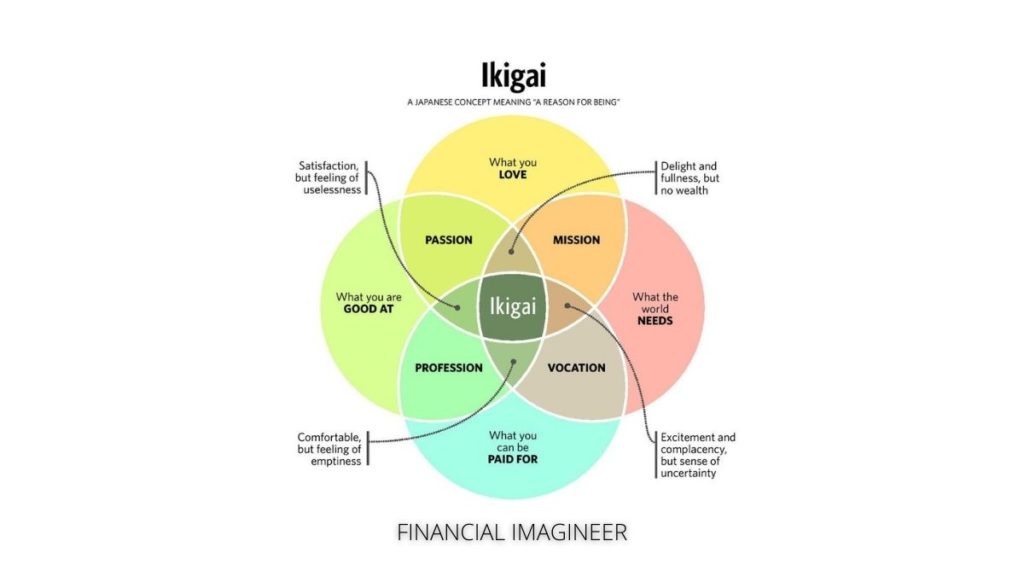This is a guest post written by Steve, the author of The Frugal Expat blog. Steve is a young, adventurous English teacher, currently residing in Taiwan and working disciplined on his own Financial Independence goals while living his dream life! We chatted a lot about our journeys and how to plan and work on a better life in a recent Youtube episode (share further below) and I’m very grateful for Steve’s contribution of this guest post about how to plan for a happy retirement!
In today’s guest post Steve explores the topic of how happiness and retirement have to go together.
The floor is yours Steve!
No matter your age, you’ve likely given some thought to when you will retire. Is part of that thinking about what will make you happy in retirement? If not, maybe it should be.
I realize it’s a strange question to ask when talking about retirement. To me, though, it’s a relevant one.
Those who are happy in retirement are, for the most part, happy in life pre-retirement. Those who are unhappy before retiring are unhappy after retirement as well.
Retiring TO Something
However, there are more people dissatisfied with their jobs these days than I’ve ever seen. That unhappiness has fueled the financial independence / retire early (FIRE) movement we hear so much about these days. Those who pursue FIRE start side hustles, part-time jobs, and save over half their paychecks for quickening the pace to reach financial independence.
The idea is not to retire completely. It’s to retire to work that brings enjoyment, and that will replace (partially or fully) the income from the nine to five job.
For them, being happy in retirement is doing what they choose to do and not be beholden to the whims of corporate America. The most successful ones are those who are not retiring FROM something (9-5 job) but retiring TO something (work they enjoy).
It’s a worthy pursuit that many have achieved. Most are happy in their new way of life. What follows are lessons all of us can learn that may help us be happier in retirement.
How Much is Enough?
Money is not the most important thing in life. But let’s face it. If we don’t have enough money to provide the income to get us through retirement, it will be much harder for us to be happy in retirement. We don’t want to worry for the rest of our lives about running out of money.
So, by all means, we need to decide how much money we need to fund the lifestyle we want for the rest of our lives. We should examine all the potential sources of income including pensions (if any), Social Security, part-time work, side hustles, income from real estate (if any), and income from investments.
From there, decide on the best way to withdraw money from those investment accounts to minimize taxes and maximize after-tax income.
Be sure to do this work early in the process. Understand that the best-laid plans may need to change. Life circumstances, health issues, and many other things can change our plans pretty quickly. Be flexible and willing to adapt as life happens.
With that, here are some other things to consider.
Managing Your Time
For this section, I’m assuming a more traditional retirement, not a FIRE retirement. Keep that in mind as you read.
No matter the profession, you are accustomed to a level of physical and mental activity that is about to shut down. If you don’t think about the adjustment in your daily level of activity you could be in trouble.
The adjustment of going from a high-level, highly engaged professional position to nothing can prove to be too much. Being pushed into retirement before being ready can result in depression and can make the first few years of retirement difficult.
Not Sure Where to Start
Here are some suggestions that I’ve seen work.
- Consider working part-time in your field. If you’re a doctor, work in a local clinic. If you’re a lawyer, do some pro bono work or teach at a university.
- Consider regularly serving at a nonprofit or with your church or religious organization. What are you passionate about? Find a way to help in that area. Passionate about education? Affordable housing? Job skills training? Lord knows there are needs in all of these areas. I’m confident you can find a way to contribute.
- Start a business. Sound crazy? Maybe not. The online marketplace offers numerous ways to make money. I read about one couple who retired purchased an RV to travel the country. They noticed a lot of household items being sold on Amazon. After further research, they decided to become Amazon resellers!
They would go to an area they wanted to visit, go to garage and yard sales looking for specific items in demand on Amazon and purchase those items. They would then resell them on Amazon, shipping the items from a nearby Amazon warehouse. It was pure genius. They were traveling the country and running a business along the way.
Maybe none of these appeal to you. We all have things we wanted to do while working that we didn’t do. Think about what that might be and go after it.
Hit the Gym
One of the things people do more of in retirement is exercise. They have more time now and choose to spend more of it at the gym. Putting in more time working out has numerous health and financial benefits.
- Stress relief – Exercise is one of the most effective ways to reduce our stress levels. It takes our minds off the worries of the day as we focus on building up our strength.
- Endorphins increase – You’ve heard of the runner’s high, right? It’s that feeling of euphoria they get during and after a good run. That comes from endorphins. Often called the feel-good neurotransmitters (ok, not that often), strenuous exercise increases the production of this feel-good brain chemical.
- Mood improvement – The feeling of satisfaction I get after a good workout, yoga class, or bike ride puts me in a better mood. It calms me down. It increases my confidence.
- More energy – I find I have more energy when I work out regularly. My mind is clearer. I focus better. I don’t feel run down or mentally groggy. I’m definitely happier when I’m exercising regularly.
- Lower health care costs – People who work out stay healthier and spend less on health care. Couple exercise with proper eating can put money in our pockets. This New York Times article cites a study saying exercise can save us an average of $2,500 a year. And that was by simply walking 30 minutes five days a week.
People who exercise regularly are happier people. It’s true for everyone I know who exercises. If you aren’t exercising now, maybe it’s time to start. If you are exercising and ready to retire, increase the amount and frequency of your workouts.

Live Your Dream Life Now
The last thing you could think about is living your dream life now. You could be unhappy with your current career and may want to strive to hit early retirement. Let’s look at ways you could hit your dream life now!
Start by checking out our Youtube session on Fast Track to learn more about how to live your dream live while preparing your life for FIRE:
Live Abroad
One of the greatest things about having the capabilities of working in this technology-based world is being able to work from anywhere. Working abroad gives you opportunities to live a life with more meaning. You can experience more places, see new things, and enjoy your life.
There are other attributes to this as well. You are no longer working for the rat race life, you are working for a life full of experiences. That is something I strive to do in my daily life. Enjoy the life I live by taking control of it and making things happen.
Find Your Passion
With many things in life, if you fail to have passion you will fail to be happy in that endeavor. People talk about Barista FIRE as a way to hit early retirement but find a part-time job to keep the bills being paid or even consider the Coast FIRE route, where you can find a better job while you coast to retirement.
Having passion in what you do will bring more happiness to you than just retiring. If you retire as an unhappy person, you are more likely not to find something unless you have passion for that thing.
For me, I enjoy finances. Being able to help people with their finances is a great passion of mine. As a teacher, I love just helping people gain knowledge and do better in their life. Traveling and enjoying experiences is another passion that I love so these two things will keep me busy throughout my life. You just need to find your passion.
Final Thoughts
Whatever you do, don’t derail your retirement before it starts. Of course, you need to have the money to provide the income you need. That’s a given. Manage your spending. Continue to look after your investments. Keep your income as tax-efficient as possible. Those are the basics of personal finance anyway. If you’ve done these things pre-retirement, if they are a habit, it will be easy to continue them after retirement.
Remember, the less money you spend, the less income you need. Work on reducing those expenses long before you reach your desired retirement age. It’s a great way to reduce the stress that comes from working about whether you have enough money or income to get you through retirement.
Retire to something, not from something. Think about how you will spend your time. Consider part-time work or service at a nonprofit in line with what you care about. Exercise, eat right, keep your mind engaged. Travel more. Spend more time with your kids and grandkids. Do what you’ve always wanted to do.
I hope I’ve convinced you there’s more to it than money. Our mindset is an important factor in our happiness. Being optimistic, looking at life through a glass-half-full rather than a glass-half-empty lens is important. If we let things get to us pre-retirement, they will get to us post-retirement.
Most of us know the things that make us happy. Sadly, we have just not taken the time to do them. Retirement should be the time we take advantage of those things and live the lives we’ve always wanted to live.
Now it’s your turn.
Have you planned how to spend your time in retirement?
What will you do differently than what you’re doing now?
Please do leave your comments below, on our social media channels and don’t forget to give Steve a follow and share the post forward!
To stay tuned for more quality content please do subscribe to my blog by email (see box below), follow on Facebook, Twitter, or reach out directly here for more.
Imagineer your life!
Matt




